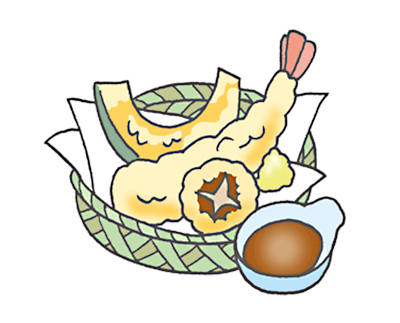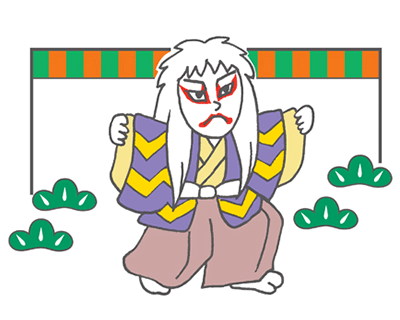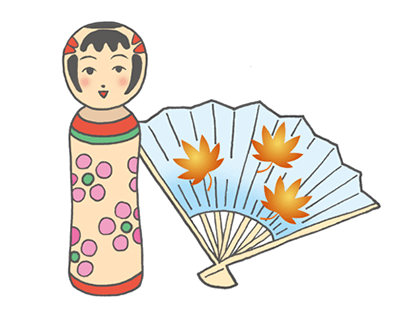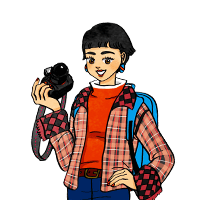Tam is chatting with her new friend Mi Ya, a photographer from China. Mi Ya's room is filled with pictures from around Japan.









To express what you're going to do, use the verb's MASU-form (that ends with "masu") such as "benkyoo-shimasu" or "I will study." This form is used when speaking politely. "De" is a particle indicating a place, and "o" is a particle expressing the object. The verb comes at the end of the sentence. Verb groups and conjugation: The basic form of verbs is called the dictionary form because that is the way they are listed in dictionaries. Examples: “kau” or “to buy,” “taberu” or “to eat,” and “benkyoo-suru” or “to study.” Verbs are divided into three groups based on how they are conjugated. Group 1 verbs end with “-u,” and the “-u” part is conjugated. They appear in forms like “kau (ka+u)” or “to buy,” “nomu (nom+u)” or “to drink,” and “iku (ik+u)” or “to go.” Group 2 verbs end with “-ru,” and the “-ru” ending is conjugated. They appear in forms like “miru (mi+ru)” or “to look” and “taberu (tabe+ru)” or “to eat.” Group 3 verbs have irregular conjugations. There are only two of them: “kuru” or “to come” and “suru/-suru” or “to do.” See the conjugation chart for more. To make a MASU-form from the dictionary form of Group 1 verbs, change the “-u” ending to “i” and add “masu” ("ka+u→ka+i masu"). With Group 2 verbs, change the “‐ru” ending to “‐masu” ("tabe+ru→tabe+masu"). Group 3 verbs (irregular verbs) are conjugated as: "kuru→kimasu" and "suru→shimasu." The MASU-form of verbs can be used to express what you’re going to do as well as your current habits and general facts.





This is a phrase to express something you're happily expecting.

You can enjoy the scenery of four distinct seasons around the country. For example, spring is the season for cherry blossoms. Kyoto is a prime place for seeing them. In summer, lots of people enjoy mountain climbing and going to the beach. In autumn, the coloring of the leaves is beautiful. Winter brings pure white snow. You can enjoy skiing and other winter sports.